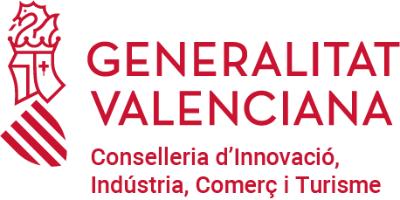ACTIVITIES
Presentación de informe: ‘Propuestas de Políticas Públicas Para la Innovación Social’
El 30 de Septiembre de 2024 se presentó en Las Naves el informe ‘Propuestas de Políticas Públicas Para la Innovación Social’, de autoría de Nittúa y El Rogle. El vídeo del evento y el informe estan disponibles en los links abajo.
Conference: The Geography of Technological Advances in Europe, by Rosina Moreno
To stimulate a discussion on the evolution of innovation policies in the European Union, Rosina Moreno, Professor of Applied Economics at the University of Barcelona, has been invited to a seminar in Valencia.
Rosina Moreno has given a presentation entitled "The Role of Relatedness and Unrelatedness for the Geography of Technological Breakthroughs in Europe", at the Casa de la Ciencia in Valencia, on Thursday, June 29, 2023.
Dominique Foray, Professor at the Ecole Polytechnique Fédérale de Lausanne, and one of the creators of the concept of intelligent specialization, also participated in this seminar. Dominique Foray has offered a presentation on the form of virtual with the title: 'Innovation policy and directionality – a case for policy engineering'.
Conference: Innovation policies aimed at social challenges, by Elvira Uyarra
On 29 September 2022. Elvira Uyarra, Professor of Innovation Studies at Alliance Manchester Business School, gave a lecture within the framework of the Chair of Smart Specialisation. Under the title "The policies of innovation oriented to social challenges. Opportunities and challenges for regional development". Uyarra first stressed how the vision of both innovation and the policies that govern innovation has changed in recent times. are carried out in this area.
In the 1990s, innovation policies were based on infrastructure and technology transfer, and the role of the government was focused on solving market failures in R+D investment, at the beginning of the 1990s. In the twenty-first century, the focus was on regional innovation systems. From 2010 onwards, policies in the European Union focused on smart specialisation strategies, which are based on the so-called discovery process and in the identification of investment priorities. And today, the central axis of innovation policies is oriented towards missions and sustainable development.
Acceleration (Global)
- Implicit vision. Global solutions to global problems.
- It tends to concentrate investment in certain scientific and technological areas identified from the bottom up.
- Centralized governance (specialized agency), involvement of a small number of actors in the definition of problems and solutions.
- Concentration of researchers in more developed geographical areas, excluding most regions.
Place-based
- Challenges that affect certain environments.
- They require a broad conception of innovation (not only technological) and a variety of social and regional contexts.
- Design of policies at the level closest to the citizen who suffers from the problem (subsidieity)
- Solutions developed from the bottom up including multiple actors in the formulation of needs and solutions.
- The role of cities and regions in the implementation of innovation policies.
But what is the role of the regions? Can mission policies be territory-based? It was another of the central issues addressed by Elvira Uyarra during her speech, after the analysis of the evolution of policies of innovation in the last 20 years. And she presented two models: "Accelerator missions", with policies oriented to well-defined objectives and generally scientific and technological; and "Transformative missions", oriented to more complex complexes that require the transformation of the system.
And she closed her presentation by talking about the advantages of directionality for regional innovation policy. He also warned of the difficulties in its implementation, due to the lack of institutional capacity: problems of coordination and mobilization of actors, and the lack of coordination of supply and demand instruments.
Contact
Pedro Marques
p.marques@ingenio.upv.es
INGENIO [CSIC-UPV]
Edifici 8E, acc. J, 4ª planta
Ciutat Politècnica de la Innovació (CPI)
Universitat Politècnica de València
Camí de Vera, s/n
46022 VALÈNCIA
+34 963 877 048

Chair funded by
